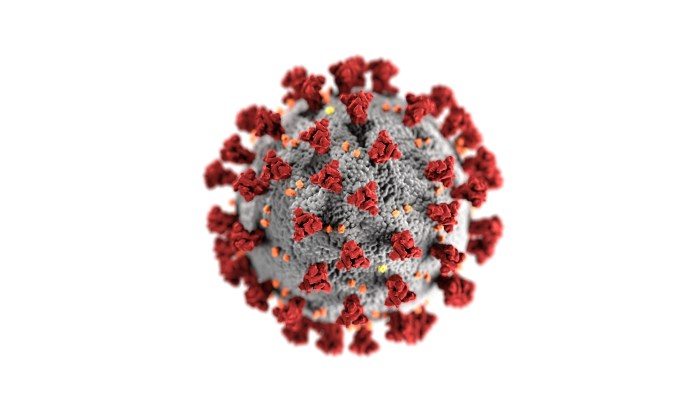Two Nassau County students associated with St. Francis Prep who both reside in Franklin Square and three other students residing in Woodmere, Hempstead and East Massapequa with no travel history to Mexico and no links to known clusters are the latest victims of H1N1, better known as swine flu.
All of these most recent cases, according to the New York State Department of Health, had mild illness and are recovering. This is the latest information on the outbreak as of press time. According to the county’s health department, this is a “rapidly evolving situation.”
“We are urging all residents to be prepared, not scared,” County Executive Tom Suozzi said.
On April 29, World Health Organization (WHO) Director-General Dr. Margaret Chan raised the current level of the influenza pandemic alert from phase 4 to 5, based on “assessment of all available information and following several expert consultations.”
“Influenza pandemics must be taken seriously precisely because of their capacity to spread rapidly to every country in the world,” Dr. Chan said in a statement.
“On the positive side,” Dr. Chan continues, “the world is better prepared for an influenza pandemic than at any time in history.”
She explains that preparedness measures undertaken because of the threat from H5N1 avian influenza were an investment.
“We are now benefiting from this investment. For the first time in history, we can track the evolution of a pandemic in real-time,” Dr. Chan said. “New diseases are, by definition, poorly understood. Influenza viruses are notorious for their rapid mutation and unpredictable behavior.”
WHO is tracking the pandemic at the epidemiological, clinical and virological levels, Dr. Chan noted, urging countries to remain on high alert for unusual outbreaks of influenza-like illness and severe pneumonia.
The World Health Organization is reaching out to companies manufacturing antiviral drugs and to influenza vaccine manufacturers to contribute to the production of a pandemic vaccine, among other agencies.
“This change to a higher phase of alert is a signal to governments, to ministries of health and other ministries, to the pharmaceutical industry and the business community that certain actions should now be undertaken with increased urgency, and at an accelerated pace,” Dr. Chan said.
“The biggest question, right now, is this: how severe will the pandemic be, especially now at the start?”
In a statement from Garden City School District Superintendent Dr. Robert Feirsen, students can safely attend classes and district school buildings are open at this time.
“We are very much aware of concern about swine flu and its impact on our school community. We have received much information from the federal, state and county governments about this matter,” the statement read on the district’s website. “However, caution is needed. Although most cases of swine flu in the United States at this time involve only mild illness, flu spreads easily.”
Parents should teach their children to wash their hands often; properly use hand sanitizers; keep their hands away from their faces and avoid touching their mouths, noses, or eyes; cover coughs and sneezes with tissues or to cough into the inside of their elbows and discard tissues in the trash immediately after one use.
The elderly population is also at great risk, according to the New York Association of Homes and Services for the Aging (NYAHSA). “If you’re not feeling well, we’re asking you to visit your doctor, not your dad in a nursing home or your grandmother who gets home care visits,” Carl Young, New York Association of Homes and Services for the Aging president, said. “Our nursing homes and senior services staffs are following strict infection-control programs, and the public’s compliance will be of enormous help.”
In an effort to help provide the public with resources and information, Senator Kemp Hannon has placed a link on his website, www.kemphannon.com, to reputable websites where residents can visit and get the latest news on the swine flu.
Residents can find updates from the New York State Health Department, answers to Frequently Asked Questions, information for child care providers, Center for Disease Control, fact sheets and useful links to information for both the public and health care providers.
“Nothing spreads fear faster than a lack of knowledge and what to do when a problem presents itself,” Senator Hannon said. “From newspaper, television and the Internet folks have a hard time not hearing about this topic. Yet, we certainly don’t want to create a panic. We are more prepared than ever to address any public health issue that arises.”
Typical symptoms such as fever, cough, sore throat, aches, chills, diarrhea and vomiting don’t necessarily mean you have contracted the swine flu. Only a lab test can confirm the presence of the illness. When in doubt see your doctor. Your doctor can help you learn if taking an antiviral drug would be beneficial. This is especially true if you have traveled in high-risk areas like Mexico or where confirmed cases have been announced, Senator Hannon added.
“Because the current swine flu outbreak differs from what traditionally was thought to be a flu affecting those who had direct contact with pigs, everyone is taking notice and paying close attention to how this virus may spread,” Senator Hannon said.
The Center for Disease Control and Prevention (CDC) has developed a PCR diagnostic test kit to detect the virus and has distributed test kits to all U.S. states and Puerto Rico. The test kits are also being shipped internationally.
“This will allow states and other countries to test for this new virus. This increase in testing capacity is likely to result in an increase in the number of reported confirmed cases in this country, which should provide a more accurate picture of the burden of disease in the United States,” CDC officials state on their website.
Mary Ellen Laurain, director of the Nassau County Health Department’s Bureau of Health Promotion and Disease Prevention urges those who become sick to stay home from work or school and limit contact with others to keep from infecting them.
Red Cross officials advise residents to review and update their preparedness plans as health experts across the world seek to get more information and a better understanding of the scope and severity of the outbreak.
“This is a good reminder to prepare for life’s emergencies. The Red Cross recommends you take this opportunity to prepare your family for any disaster by getting a kit, making a plan and being informed,” American Red Cross officials state.
Governor David Paterson activated the state’s health emergency preparedness plan to enable the appropriate agencies to quickly respond to the swine flu outbreak.
The New York State Department of Health continues to work closely and coordinate with the CDC and city and county health departments to address the possible spread.
“Because of effective planning, the department has been able to move swiftly to respond to this situation,” New York State Health Department Commissioner Richard Daines said. “All influenza can be serious — and deaths can be expected.”
On average each year, there are 36,000 seasonal influenza-related deaths in the United States, including approximately 2,000 deaths in New York.
For the latest information on the swine flu outbreak, residents should contact the Nassau County Red Cross chapter at 747-3500 or visit www.nassauredcross.org; the Centers for Disease Control and Prevention at 1-800-CDC-INFO or visit www.cdc.gov/swineflu; or call the Nassau County Department of Health at (day) 227-9697 (after hours) 742-6154 or visit http://www.nassaucountyny.gov/.































